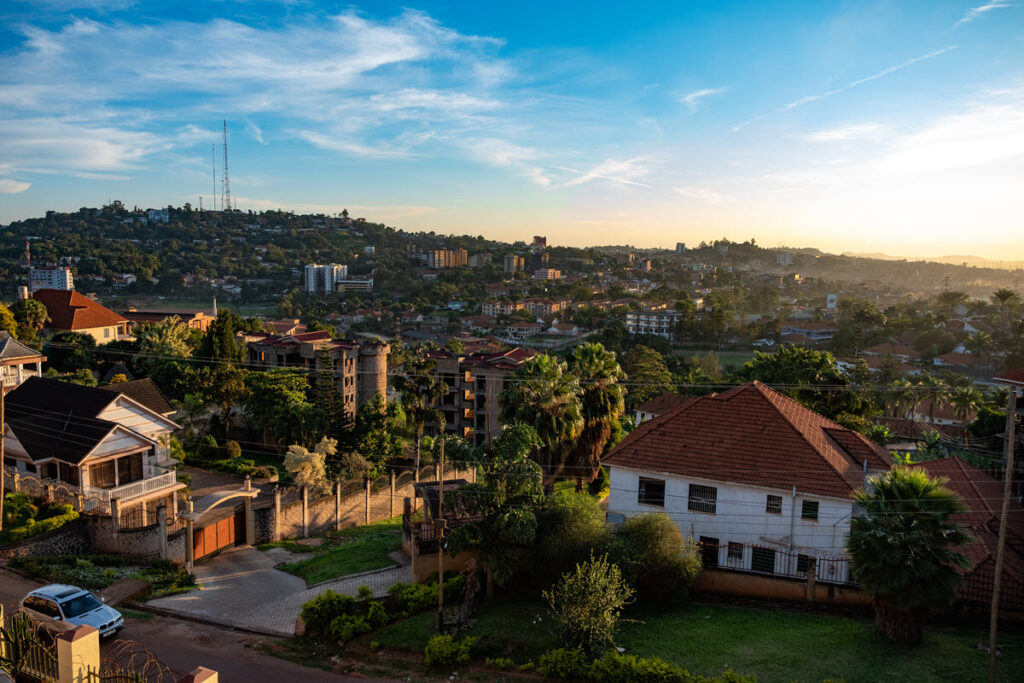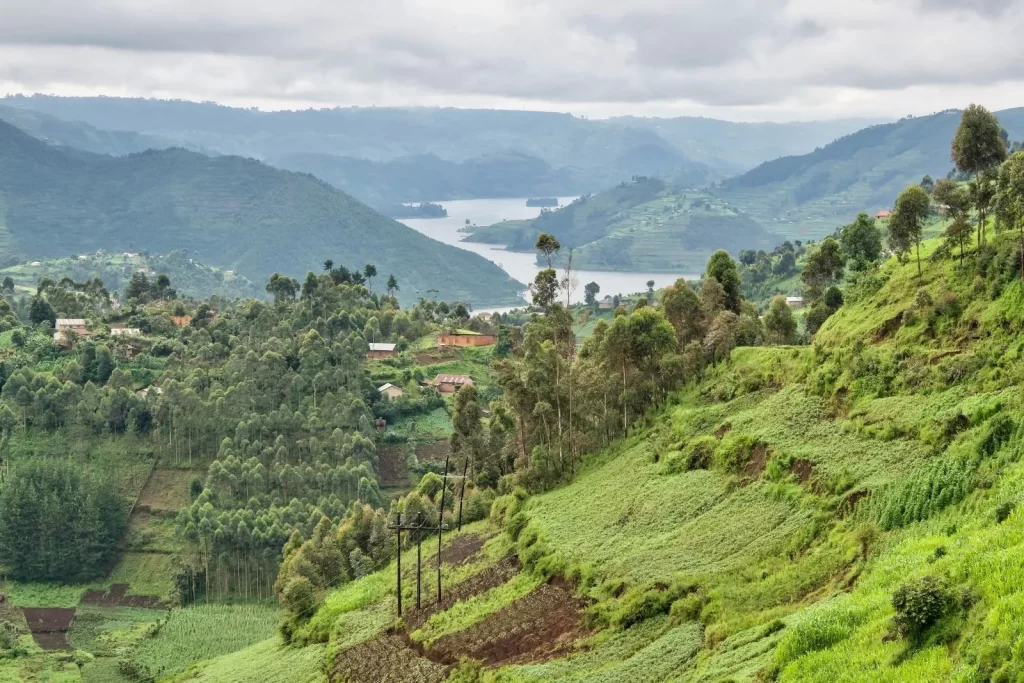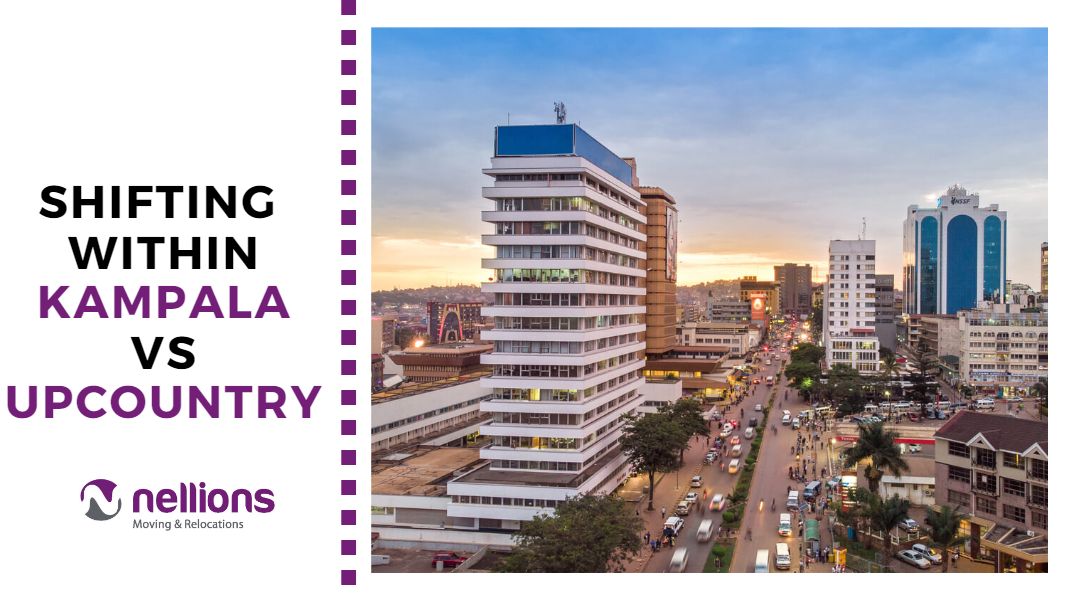Shifting residences is an inevitable part of life, often driven by various factors such as work, family, or personal preferences. In Uganda, a country known for its vibrant culture and diverse landscapes, two distinct choices emerge when it comes to relocation: shifting within the bustling capital city of Kampala or shifting upcountry to explore the countryside. Each option offers unique advantages and challenges, catering to different lifestyles and aspirations.
Kampala, the heart of Uganda, presents a bustling urban environment brimming with opportunities and amenities. Shifting within Kampala provides individuals convenient access to many employment prospects, educational institutions, healthcare facilities, and a thriving social scene. The city’s vibrant markets, shopping malls, and entertainment venues offer a dynamic lifestyle that appeals to those seeking a fast-paced, cosmopolitan experience. The well-developed infrastructure, including reliable transportation systems, also ensures efficient connectivity within the city and its surroundings.
On the other hand, shifting upcountry Uganda unveils a different realm of possibilities. Upcountry living offers a peaceful respite from the urban hustle with its breathtaking natural beauty, serene landscapes, and close-knit communities. Exploring the countryside allows individuals to immerse themselves in the rich cultural heritage and traditional way of life that define Uganda. Moreover, the upcountry regions boast a slower pace of life, where individuals can savor the tranquility and enjoy a closer connection to nature.
Whether one shifts within Kampala or ventures upcountry in Uganda, each option presents its unique allure. The decision ultimately depends on individual preferences, lifestyle goals, and the pursuit of happiness in a country offering diverse experiences. This article will dive into shifting upcountry Uganda.

Pros and Cons of Shifting Within Kampala
Pros
Shifting residences within Kampala, the vibrant capital city of Uganda, offers a plethora of opportunities and amenities. However, it is very crucial to consider the pros and cons before making the decision. Let’s explore the advantages and challenges of shifting within Kampala:
Employment Opportunities
One of the significant advantages of shifting within Kampala is the abundance of employment opportunities it offers. This great city serves as the economic hub of Uganda, attracting businesses from various sectors. This translates into many job prospects for individuals seeking career growth and professional advancement. The presence of multinational corporations, local businesses, and entrepreneurial ventures fosters a competitive job market and opens doors for individuals looking to make their mark.
Education and Healthcare
Education and healthcare are crucial factors to consider when choosing a new residence. Kampala boasts reputable educational institutions, ranging from primary schools to universities, providing quality education to students. Additionally, the city has well-equipped hospitals and healthcare centers, ensuring access to advanced medical facilities and specialized care. Shifting within Kampala can benefit families with children and individuals prioritizing quality education and healthcare services.
Infrastructure
Infrastructure is another area where Kampala shines. The city’s well-developed transportation systems, including an extensive road network and public transportation options, make commuting convenient and efficient. This connectivity facilitates accessibility to different parts of the city, reducing travel time and enhancing convenience for residents. Furthermore, Kampala’s infrastructure includes modern utilities, such as reliable electricity and internet connectivity, ensuring a comfortable and connected lifestyle.
Cons
While shifting residences within Kampala, the bustling capital city of Uganda, offers many opportunities and amenities, it is also very crucial to also consider the potential drawbacks of urban living. From the high cost of living to issues of congestion and limited space, there are several factors that individuals must weigh when contemplating a move within the city.
Cost of Living
One of the primary concerns of shifting within Kampala is the cost of living. The city’s popularity and economic significance have contributed to a higher cost of housing, rent, and daily expenses than other areas in Uganda. The demand for accommodation often surpasses the available supply, leading to increased prices and limited affordable options. Individuals considering shifting within Kampala must be prepared for the financial implications of urban living.
Congestion and Traffic
Congestion and traffic are persistent challenges in Kampala. The city’s rapid growth and insufficient infrastructure have resulted in overcrowded roads and regular traffic congestion during peak hours. Commuting within the city can be time-consuming and frustrating, leading to decreased productivity and increased stress levels for residents. The traffic issue also contributes to longer travel times and reduced access to certain city areas.
Noise and Pollution
Another drawback of urban living in Kampala is the higher noise and pollution levels. The constant buzz of traffic, construction, and commercial activities can create a noisy environment, particularly in densely populated areas. Kampala’s rapid urbanization has increased air and environmental pollution, adversely affecting residents’ health and well-being. Individuals who prefer a quieter and cleaner living environment might find shifting within Kampala less desirable.
Pros and Cons of Shifting Upcountry
Pros
shifting upcountry Uganda offers many advantages for individuals seeking a change from urban life. The serene and natural landscapes, close-knit communities, lower cost of living, and reduced congestion and pollution make upcountry living an enticing option. Exploring these pros can shed light on the unique opportunities and experiences that await those who embrace the tranquility and authenticity of upcountry Uganda.
Serene and Natural Landscapes
One of the primary draws of shifting upcountry Uganda is the opportunity to immerse oneself in the serene and natural landscapes that abound in the countryside. Picture lush green hills, sprawling farmlands, and breathtaking views that provide a respite from the hustle and bustle of city life. The countryside offers a chance to reconnect with nature, indulge in outdoor activities, and appreciate the beauty surrounding you. For nature enthusiasts and those seeking peace and tranquility, the upcountry regions of Uganda provide an ideal setting to rejuvenate the mind and soul.
Close-Knit Communities and Cultural Experiences
Close-knit communities and rich cultural experiences await those who shift upcountry in Uganda. Neighbors often know each other in these regions, and a strong sense of community thrives. The warm hospitality and genuine connections fostered in upcountry areas create a supportive and inclusive environment. Embracing the close-knit communities allows individuals to form meaningful relationships, participate in local traditions and celebrations, and gain a huge understanding of the diverse cultural heritage that defines Uganda.
Lower Cost of Living
The lower cost of living is a very significant advantage of shifting upcountry Uganda. Upcountry regions typically offer more affordable housing options and reduced expenses than urban areas. This affordability extends to daily necessities, services, and even recreational activities. Shifting upcountry allows individuals to stretch their budget further and achieve an even higher quality of life without the financial strains often associated with urban living.
Cons
While shifting upcountry Uganda offers several advantages, it is also very crucial to also consider the potential drawbacks of this choice. Limited access to certain amenities, limited employment opportunities, reduced infrastructure and services, and the need to adjust to a different lifestyle are factors individuals must weigh when contemplating a move upcountry.
Limited Access to Certain Amenities
One of the challenges of shifting upcountry Uganda is the limited access to certain amenities. Remote upcountry regions may have fewer options for specialized healthcare facilities, educational institutions, or other more readily available services in urban areas. Individuals with specific medical or educational needs may need help accessing the required facilities or expertise in their immediate vicinity, potentially necessitating travel to urban centers.
Limited Employment Opportunities
Another consideration is the limited employment opportunities in upcountry regions. Urban areas like Kampala offer more job prospects and career advancement options than remote upcountry locations. The local job market in upcountry regions may be more limited, which can pose challenges for individuals seeking specific professional opportunities or those in industries with a stronger presence in urban areas.
Reduced Infrastructure and Services
Reduced infrastructure and services are additional factors to consider when shifting upcountry. At the same time, upcountry regions boast natural beauty but may need more developed transportation networks, utilities, and internet connectivity than urban centers. Limited access to reliable transportation, intermittent utility services, and potentially slower internet speeds can affect convenience and connectivity in day-to-day life.
Shifting Upcountry Uganda: Comparing Cost and Traffic
When contemplating a change of residence in Uganda, two primary options often come to mind: shifting within Kampala, the bustling capital city, or shifting upcountry to more rural areas. Each choice has its own set of considerations, including factors like cost and traffic. Let’s compare these variables to help individuals decide the best relocation option for their circumstances.

Cost
Shifting within Kampala generally entails a higher cost of living than in upcountry areas. The demand for housing in the city often results in higher rent prices and increased expenses for daily necessities. Additionally, the cost of goods and services tends to be higher in urban centers. On the other hand, shifting upcountry typically offers more affordable housing options and reduced living costs. The cost of products and services in rural areas is often more favorable, allowing individuals to stretch their budget further.
Traffic
One of the major challenges in Kampala is traffic congestion. The city’s rapid urbanization and insufficient infrastructure have led to overcrowded roads and extended peak-hour commuting times. Navigating through the city’s busy streets can take time and effort. In contrast, upcountry areas generally have less traffic congestion. The roads are often less crowded, allowing for smoother and more efficient travel. Commutes tend to be shorter, reducing stress levels and improving overall quality of life.
It is important to note that while upcountry areas may have less traffic congestion, they might also have limited road infrastructure. Remote regions may have unpaved roads or roads that could be better maintained, which can pose challenges during certain weather conditions. This is in contrast to the better-developed road networks and transportation systems within Kampala.
The difference in Packing When Shifting Upcountry Uganda
Shifting within Kampala generally involves shorter distances and easier access to amenities, making the packing process relatively more convenient. Individuals may make multiple trips with their belongings, allowing them to move their possessions to their new residence gradually. This can make packing less overwhelming, as they can focus on essentials first and gradually transport the remaining items. However, categorizing and organizing belongings is still important to ensure a smooth transition.
On the other hand, shifting upcountry involves longer distances and potentially limited access to certain amenities, which requires a more strategic approach to packing. Individuals may need to consider packing their belongings more comprehensively and efficiently, as they may not have the luxury of making multiple trips or accessing items once they have moved. It is essential to carefully plan and pack essential items, furniture, and other possessions that will be needed immediately upon arrival. Additionally, upcountry shifting may involve navigating rough terrains or more challenging transportation logistics, necessitating secure and durable packaging to protect belongings during the journey.
Choosing the Right Movers
When shifting within Kampala, selecting a shifting company that is well-versed in navigating the city’s busy streets and traffic patterns is crucial. The company should have a very deep understanding of Kampala’s neighborhoods and be able to plan the most efficient routes for transportation. Look for a shifting company with a proven track record in Kampala. Their experience will help ensure that your belongings are transported safely and on time, even amidst the city’s congestion.
On the other hand, shifting upcountry requires a shifting company with expertise in navigating longer distances and potentially more challenging terrain. The company should have experience handling rural or remote areas, as upcountry regions may have narrower roads, varying road conditions, and potential accessibility issues. Consider a shifting company specializing in upcountry relocations, as they will have the knowledge and also resources to handle the unique challenges of moving to more remote locations.
Nellions: The Best Shifting Company for Urban and Rural shifting in Uganda
Regarding shifting within Kampala or upcountry in Uganda, one shifting company stands out as the top choice: Nellions. With its extensive experience, commitment to excellence, and comprehensive range of services, Nellions has established itself as Uganda’s best-shifting company for urban and rural relocations.
Nellions understands the unique challenges of shifting within Kampala, Uganda’s bustling capital city. With our in-depth knowledge of the city’s neighborhoods, traffic patterns, and infrastructure, Nellions can efficiently navigate the busy streets and ensure a smooth and timely move. Our experienced team of skilled professionals has mastered the art of urban shifting, providing impeccable packing, loading, transportation, unloading, and unpacking services. Whether you’re moving to a new apartment, house, or office within Kampala, Nellions’ expertise guarantees a hassle-free experience.
But Nellions doesn’t stop at urban shifts; we also excel in upcountry relocations. Our specialized knowledge of rural areas and remote locations sets us apart from other shifting companies. Navigating narrower roads, varied terrain, and potential accessibility issues is second nature to the experienced team at Nellions. We have successfully handled numerous upcountry shifts, ensuring the safe and secure transportation of belongings even in challenging environments.
Common Mistakes To Avoid When Shifting
Shifting upcountry Uganda can be an exciting and transformative experience. However, it also presents unique challenges that require careful planning and execution. Understanding and addressing these pitfalls can ensure a smoother transition to your new upcountry destination.
- One common mistake is underestimating the logistics involved in upcountry shifts. Upcountry regions often have narrower roads, varying terrain, and potential accessibility issues. It is crucial to assess the route, consider potential road conditions, and plan for any obstacles that may arise during transportation. It is also very vital to account for these factors to avoid delays, damage to belongings, or even transportation issues that could have been avoided with proper planning.
- Another mistake is inadequate packing and protection of belongings. Upcountry moves may involve longer distances and potentially rougher road conditions. Investing in sturdy packing materials, proper cushioning, and secure packaging is essential to safeguard your items during transit. Neglecting proper packing techniques can result in damage or breakage of valuable possessions, leading to unnecessary stress and financial loss.
- Communicating effectively with the shifting company is another common mistake. Clear and very open communication is key to a successful upcountry relocation. Provide detailed information about your requirements, specific challenges at the destination, and unique items that need special handling. Additionally, stay in touch with the shifting company throughout the process to address any concerns, provide updates, and ensure smooth logistics coordination.
- Failure to consider the timing and weather conditions can also be a significant oversight. Upcountry regions in Uganda can experience different weather patterns compared to urban areas. Rainy seasons or harsh weather conditions may impact road conditions and accessibility. It is advisable to plan your move during a more favorable season or consult with the shifting company to determine the most suitable time for relocation, considering weather forecasts and local conditions.
Conclusion
Ultimately, deciding between shifting within Kampala or shifting upcountry Uganda depends on individual preferences, priorities, and circumstances. Shifting within Kampala offers the convenience of urban amenities, better job prospects, and a vibrant social scene. On the other hand, shifting upcountry provides the allure of serene landscapes, close-knit communities, and a lower cost of living. Each option has pros and cons, such as congestion and limited space in Kampala or limited access to amenities and employment opportunities upcountry. Ultimately, individuals must carefully consider their needs and aspirations to make the best choice for their desired lifestyle and future goals.


